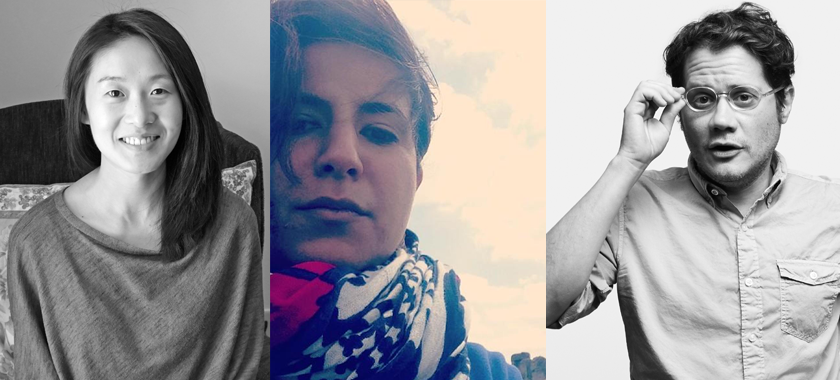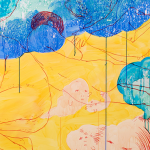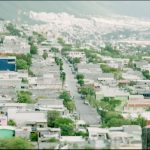Business of Art | Why Mentorship is Essential to Your Career Strategy
How a lasting mentorship can feel like companionship and be transformative for both the mentee and mentor.
New York Foundation for the Arts’ Immigrant Artist Mentoring Program is the only known program of its kind in the United States, and has provided 490 immigrants from 79 countries and regions with mentorship, community, and exposure for their work since it was founded in 2007. Among the program’s past participants are 2020 NYSCA/NYFA Artist Fellows Ge Gao (Nonfiction Literature), Marwa Helal (Poetry), and Ricardo Maldonado (Poetry, also ’11). Maldonado was a mentor to both Helal (in 2014) and Gao (in 2017) in NYFA’s Immigrant Artist Mentoring Program: Performing and Literary Arts, and we spoke with the writers to find out more about the two-way impact of the mentee/mentor relationship, how they’ve helped each other push their careers forward, and why all three are giving back as mentors.
NYFA: Ricky and Ge and Ricky and Marwa, can you speak a bit more about your original mentor/mentee relationship and how it has evolved since the mentorship program ended?
Ricardo Maldonado: Coming across IAP applications from Marwa and then Ge was transformative for me. I had spent years focused on the business of art, but not its necessity as an instrument of community. I felt a need to replicate the many mentorships that had changed me as a young writer, when I felt no longer alone. Keeping in mind the immediate empowerment that comes from recognition—that sense of corroboration I felt I was responsible to share with both Marwa and Ge, because I saw in them something that spoke to my very own sense of how I live, or, rather how I could be sensible with myself, they made that legible to me. Having what I feel like is an ability—the privilege—to see them, even after our mentorship ended has given me the strength to be a more sensitive reader.
Ge Gao: Ricky and I bonded immediately over our shared history at Columbia University School of the Arts. In the summer of 2017, towards the end of the IAP program, I was about to graduate from my MFA and I was terrified. Ricky, as my mentor, offered me much encouragement, reassurance, and guidance. He helped me to be resilient—the key to getting published is to keep writing and keep sending out submissions (and of course, keep facing rejections and being okay with it). But he also helped me to practice patience, a skill that’s much harder to learn and master. Getting better at your craft takes time; learning the rules in the publishing world takes time too. I think as an emerging writer, I often forget that and can be anxious and defensive about the process and expectations. Ricky often reminds me that at the end of the day, it is the process that counts and holds me to my writing.
Marwa Helal: What a blessing. To this day, I am so grateful for how Ricky sees and reads. He is an actual lightworker or “warrior of light.” I mean, that’s what art or creation is: making the best of our resources while focusing on the greatest potential of the work and person producing; crafting; bending that light into something helpful to others.
NYFA: Ge and Marwa, can you speak about how participating in IAP and receiving mentorship from Ricky helped you break new ground in your writing and poetry careers?
GG: After I graduated from my MFA program, there was a sense of loneliness. No more workshops, no more group discussions about books and crafts, or sharing of artistic goals and challenges. But participating in the IAP program really gave me a chance to form another kind of community outside of the academic setup. The IAP community was diverse, exuberant, international. It provided a space for thoughtful conversations and a supportive network. Particularly, the mentorship and friendship I have with Ricky now becomes an essential part of my work and life. Even after the end of the program, he still reads my drafts and gives me honest feedback. This year, both Ricky and I won NYSCA/NYFA Artist Fellowships in our category of concentration. I couldn’t be happier when we texted each other congratulations. This whole journey to me has been nourishing and enriching. I only have gratitude from the bottom of my heart.
MH: I am reminded of the idea: “if it is inaccessible to the poor it’s neither radical nor revolutionary.” IAP brought us together: that’s groundbreaking. Look at the “radical” “revolution” unfolding. I mean look at our book titles (Invasive species and The Life Assignment). Throw those swords (read: pens) up! Ricky helped me see myself and my work in a new light. Coming out of an MFA program where I was basically being dismissed for work my classmates hadn’t even read or didn’t even have the skillset to know how to read, NYFA IAP was the beginning of a big shift for me. My work was finally in the right light. It was valued and held lovingly. I am forever grateful for this.
NYFA: Mentors can be found in many places. Can you each speak to some of the other mentors in your lives and how you first met? As you are all mentors, please speak more to how you have taken on mentorship roles with others and what that means to your work, life, and practice.
RM: Deborah Digges, Lucie Brock-Broido, I have lost a few of my mentors in the past decade, but I still feel their imprint in my work and my need for a kind of clarification and confirmation. I write with them and toward them in the solitude of my own ways, so lasting mentorship feels like companionship. Other mentors are still with me: in person and on the page. For that I am grateful. Marwa and Ge became mentors from day one. The most significant gift I ever received from a mentor is the absolute knowledge that, well: I’m all right, I’m on my way and it’s time to think, I mean, to read and therefore love better.
GG: I have a few Columbia professors to thank including Lis Harris (for not just caring about my manuscript but also asking me whether I have good roommates or not) and Richard Locke (for being the best editor I have ever met and going through each line of my draft to show me how exactly writing works). As an adjunct lecturer teaching at Hunter College now, I intend to give the same to my students: dedication, generosity, and empathy.
MH: Trust, sight, and insight. That is what my best mentors have shown me. You gotta see folx in their highest light and guide them towards that. Teach them to trust themselves more than you. That is what the best mentors and teachers do. I am getting better at this, I hope.
Hear Marwa Helal speak as part of our upcoming “Doing the Work: Writers Coming Together in Times of Crisis” event on Wednesday, December 4 from 4:00 PM-5:30 PM EST. Presented by NYFA and PEN AMERICA, the event will feature Helal, Ariana Brown, and Francisco Gutierrez in a conversation moderated by Alejandro Heredia. The goal of the conversation is for participants to walk away with greater knowledge of available opportunities to build community with writers as well as the confidence needed to find their own ways of doing the work. Full details and registration here via Eventbrite.
About Ge Gao
Ge Gao is a Chinese writer based in New York City. She participated in NYFA’s Immigrant Artist Mentoring Program as a mentee in 2017. Gao received a BA degree in Philosophy from the University of Minnesota, Twin Cities, and a MFA degree in Creative Nonfiction Writing from Columbia University. Her essays have appeared in The Threepenny Review, Longreads, Words Without Borders, Twin Cities Daily Planet, and elsewhere. She has worked as a writing consultant at Borough of Manhattan Community College, and an adjunct lecturer for English composition courses at Hunter College. She is currently working on a book of essays about her cross-cultural coming-of-age story.
About Marwa Helal
Marwa Helal is a poet and journalist who participated in NYFA’s Immigrant Artist Mentoring Program as a mentee in 2014 and as a mentor 2016 and 2018. She is the author of Invasive species (Nightboat Books,
2019) and winner of BOMB Magazine’s Biennial 2016 Poetry Contest. She has been awarded fellowships from Poets House, Brooklyn Poets, the Conversation Literary Festival, Cave Canem, New York Foundation for the Arts/New York State Council on the Arts, and is a Jerome Hill Artist Fellow. Born in Al Mansurah, Egypt, Helal currently lives and teaches in Brooklyn, NY. She received her MFA degree in Creative Nonfiction from The New School and her BA degree in Journalism and International Studies from Ohio Wesleyan University.
About Ricardo Maldonado
Ricardo Alberto Maldonado was born and raised in Puerto Rico. He served as a mentor in NYFA’s Immigrant Artist Mentoring Program in 2012, 2014, 2017, and 2018. He is the co-editor of Puerto Rico en mi
corazón and the translator of Dinapiera Di Donato’s Colaterale /Collateral (Akashic Books and National
Poetry Series). He is the recipient of fellowships from CantoMundo, New York Foundation for the Arts/New York State Council on the Arts, and Queer|Arts|Mentorship. Maldonado lives in New York, where he serves as managing director at 92Y’s Unterberg Poetry Center. He is the author of The Life Assignment (Four Way Books, 2020).
– Amy Aronoff, Senior Communications Officer
You can find more articles on arts career topics by visiting the Business of Art section of NYFA’s website. Sign up for NYFA News and receive artist resources and upcoming events straight to your inbox. Have an arts career question? You can contact NYFA staff directly by emailing [email protected].
Subscribe to our free monthly ConEdison Immigrant Artist Program Newsletter for artist’s features, opportunities, and events. Learn more about NYFA Immigrant Artist Mentoring Program.





